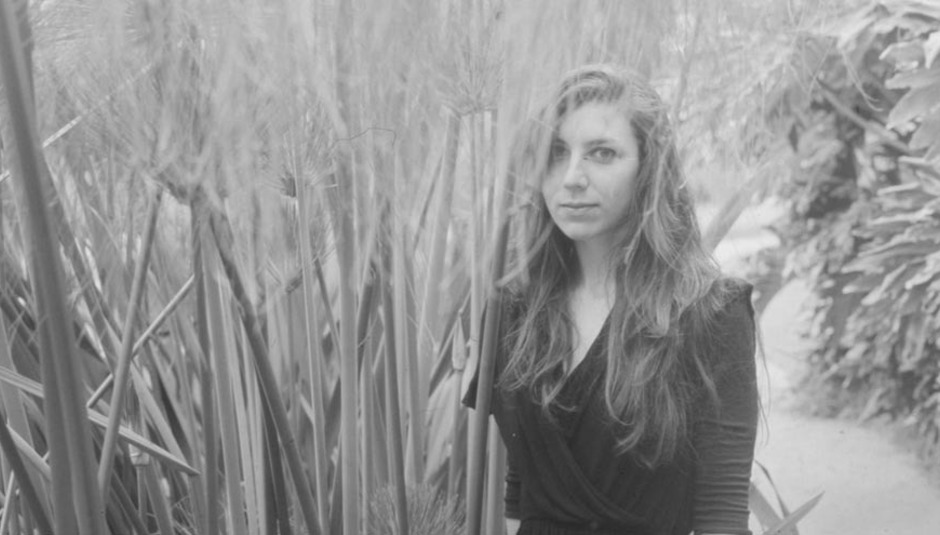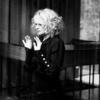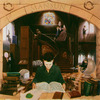With Loud City Song, her third studio album proper, Julia Holter has created another brilliant record, but this time it seems more people are sitting up to take notice. The hypnotic songcraft of earlier efforts remains, accompanied this time by discontent at our obsession with needless chatter and gossip - something which has (amusingly) resulted in the LA-based Holter getting plenty of extra attention everywhere from Pitchfork to The Guardian. We finally managed to catch up with her in the midst of her enormously busy schedule to try and find out more about this most intriguing of songwriters...
DiS: Let’s start with the title of your new record, Loud City Song, which I believe refers to the loudness of mundane gossip, advertising, etc... Is that something which has also influenced the songs themselves?
JH: Yes, as in ‘Horns Surrounding Me’, for example. I tried to bring to life this character running away from paparazzi, and, in general, running away from the bombardment of loudness that makes him unable to find true love. The love in his life is superficial ("as the sound recedes, bored lover falls asleep and disappears") so he is seeking quiet and intimacy. I see it as a he, as Gaston from Gigi more specifically, but it doesn't have to be a he!
DiS: ‘Gigi’ is a big influence on this album isn’t it? Why did it so capture your imagination?
JH: Well, I grew up watching it as a kid, because my grandma had it. I'm not big into musicals or anything, but ‘Gigi’ is a really good one. The characters are interesting and the costumes are good, the music is good... So basically that prompted me to read Colette's original story when i was in college, and when I really thought about what it was about, it was really easy to relate to, even though I'm not like Gigi in that I'm not being forced to become a professional mistress of rich men! In general though, it's about an individual trying to find truth and love in a superficial society and pretty much anyone can relate to that. I felt like I could do a lot with that.
DiS: What about the process of recording this album? You used a full band this time right? How did you find that compared to recording alone in your room on previous records?
JH: I actually found it to be way more fun and way more efficient. I actually wrote and recorded demos for a year and a half in my room and arranged the parts for the players ahead of time, so I had plenty of alone time beforehand to figure out what i wanted to do.
DiS: I found there to be a certain intimacy about the sound on the first two records, in the sense that they actually sounded like they had been recorded alone, but that really hasn’t been lost with Loud City Song despite the different approach. Was it important to you that that intangible feel was retained?
JH: Well I think for me every project is different but it might be that my music is inherently intimate because I like to really become one with my characters for each song, as well as creating a filmic atmosphere.. Cole Marsden Greif-Neill, the producer, knew that I, like a lot of the other people he's worked with (Nite Jewel and Ariel Pink, for example), had always worked alone and we planned it so that the record would be done professionally but also comfortably enough that I could be creative. That means that I actually recorded all my keyboard parts at home, and recorded my vocal parts at his house, all so I could be in a place that didn't have a time restraint when I worked on my performances. Then we recorded with musicians for six days, and then there were months and months of us working on the record on our own or together, me recording, and him mixing.
DiS: What about the Barbara Lewis song, ‘Hello Stranger’? What prompted you to put a cover of that on the album? Was it something you’d been thinking about for a time or did it just feel right to do in the context of the record?
JH: I grew up listening to that song. It was on some compilation my Mom had called ‘Wonder Women’, which was great by the way, and one day a few years ago I started playing it on my keyboard and singing it and ended up recording it. It occurred to me one day while brainstorming ‘Loud City Song’ that this song would make sense on the album because in the musical Gigi, there is a song called ‘I Remember It Well, which is about two older people reminiscing about a brief affair they had together decades before, without ever able to agree on the facts. As ‘Hello Stranger’ deals with nostalgia and vagueness of memory of love in a different, but equally compelling, way I thought I would include it. That’s MY reason for including it anyway, but I know no one will probably ever make that connection. Ultimately what's important is that it works in the context of the record just as a listener who doesn't know what the back story is, and I think that the record wanted at least one song that was almost mantra-like and repetitive as it is.
DiS: You seem to adopt a different accent on the ‘Maxims’ songs on the album. Is that an attempt to utilise your vocals almost as a part of the instrumentation as well as the voice for lyrics? How central do you think your voice is to the overall sound palate of your music?
JH: Yes, as I think the accent is very Gigi, specifically Leslie Caron in the musical. I think I said earlier how I like to create a new character for each song, so they are all different.... that is something very important to me, so it’s a reflection of that. As for the centrality of the voice... I wish the voice wasn't so important to me but it seems to be. I didn't used to even sing so it's still a bit weird!
DiS: It’s weird in a sense, for me listening to your music without ever having met you or anything, to imagine you being from LA. Your music is subtle and spacious where LA as a city has a reputation for being quite brash and frenetic. It’s not where I’d guess you were from after listening to your records! Do you find it a continually inspiring place to live and to be creative?
JH: I love LA! It's actually really subtle and spacious and, I think, rather impossible to define. No one is trying anymore (laughs). It's just a conglomeration of a million things really. Obviously Hollywood is there but it's a really small world. Think about it, who there actually is that rich and famous? Most people certainly aren't. I think the thing with LA is that it’s both beautiful a lot and ugly a lot. I live in Echo Park which is now notorious for being the home of musicians and artists, but it's actually a very quiet place and I don't see people I know walking around. If I do, it's really chilled, like I just see them hiking or chilling at the park, or I see them buying fruit at the farmers market. So yeah, I think people are relatively happy here actually.
DiS: It doesn’t surprise me that you come from something of a musically academic background, and that you have studied composition, because your songs always seem so well written on multiple levels. How much do you think that background has informed your musical style?
JH: Well thank you that's a pretty nice thing to say! I'm still figuring it all out really. Right now I'm actually working on this thing that is basically me orchestrating a poem I wrote for a really professional ensemble to play, who i don't know,, and I feel really like a fish out of water in a way. When I was in school I never really arranged the way I'm arranging now. I wrote music that was much more complicated, and kind of bad to be honest, but it was more polyphonic and idiomatic for whatever instruments I was working with. Now I'm writing music that is more like an accompaniment to my vocal part, and so it's hard for me to make the connections. So, whilst I know for sure that learning theory and some basics of orchestration has helped me, the process is so intuitive to me that it's hard to know. I think i always have a sense of the form of something before I jump into it, so maybe it's about having experience with learning to pace yourself right and knowing when something is worth working on and when it's not worth working on. It's always tricky though, no matter how much "training" you have.
DiS: There’s a definite element of ‘pop music’ to what you do, but there’s obviously also a lot of experimental touches as well. Do you see yourself as an experimental artist? Is that the goal - to push the boundaries of ‘pop songs’?
JH: I definitely don't have a goal here, unless it’s just to make good music. I think of it almost like poetry, and I only say that because i don't limit myself with genres musically. What's important to me is solely communicating the sentiment I want to express in each song. That kind of focus on the sentiment probably explains why my songs have different sounds to them, or at least I think they do; I’m probably am the wrong person to judge. I think I am "experimenting" but still I have trouble calling things "experimental" if you see what I mean. Labels are hard like that. So I take my work seriously enough to make sure it has some kind of form, but as to what form it takes I make sure to let my mind go with it and figure it out. It's constantly a balance between big plans and the ideas of the moment. There's no science to it, but it's really important for me to always allow myself to experiment.
DiS: All your records have been progressions of your sound. You’re clearly not about just doing the same thing over and over again. How do you see this developing in the future? Are there particular directions in which you want to go musically, somewhere down the line?
JH: I think the key is not making a plan. I mean I do hope to do it for the rest of my life, but we will have to wait and see on that one! I do want to try being just the composer behind-the-scenes again at some point, as I think that is what I am best suited to, rather than always performing my own music. I don't think I always need to be the performer. In fact, I think it would be fun to go back to having people perform instead of me, as I used to do years ago. For now I’m having a lot of fun with the voice, I know that much.
DiS: Right now, it feels a bit like you’re everywhere. This record seems to be getting a lot of attention, from a lot of mainstream media as well. How are you feeling about that?
JH: I feel really lucky and I'm happy.
DiS: Perhaps, ironically, a record poking fun at celebrity culture is going to turn you into a celebrity?
JH: I can assure you it will never go that far honestly! Thankfully there are plenty of well-known musicians who never have to deal with paparazzi. I’m never going to be a Gaga or a Bieber...
Loud City Song is out now on Domino.






















